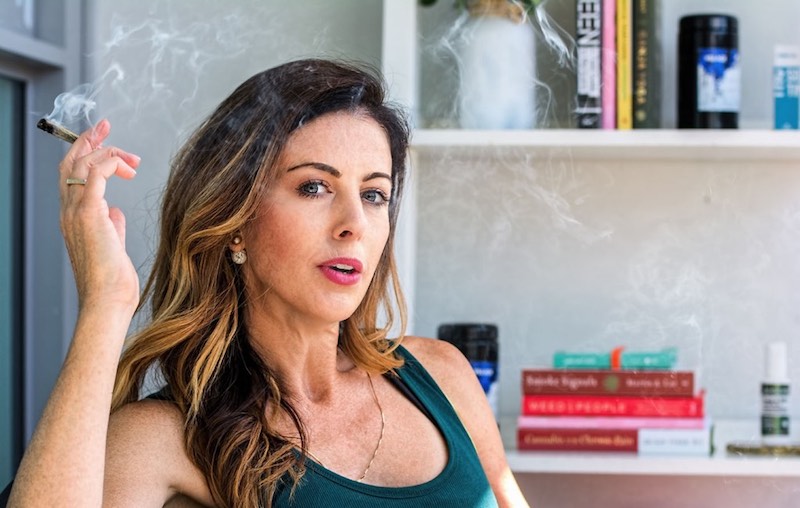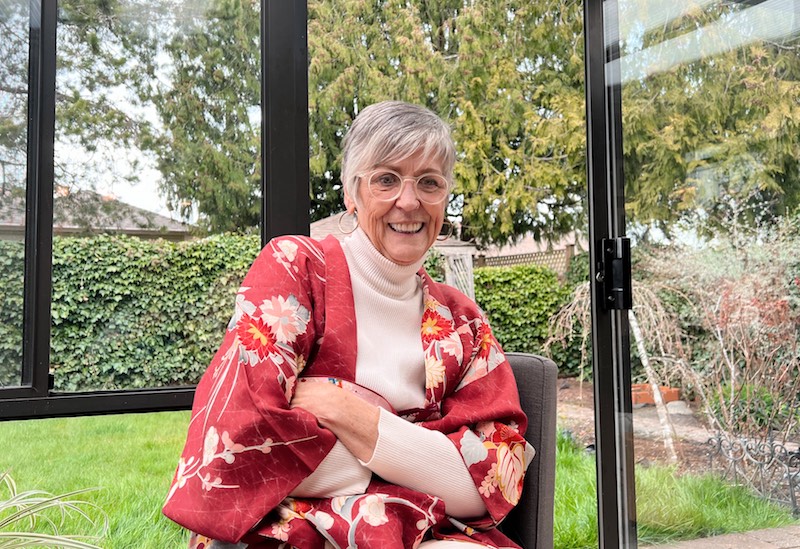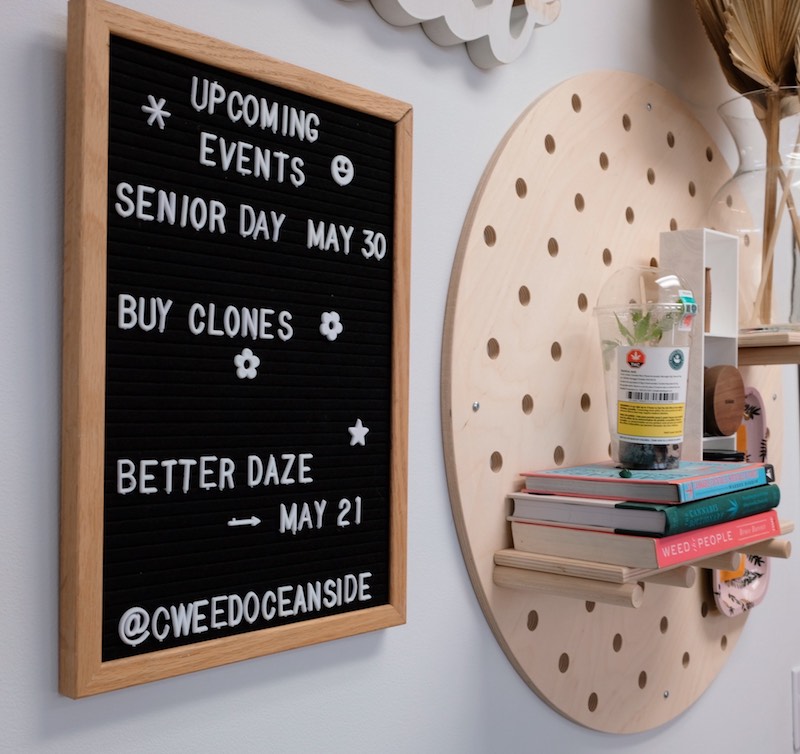Features
Party pooper: Private gathering draws Health Canada’s eye
Published on May 19, 2023 by David Wylie
 Photo: Chung Chow
Photo: Chung Chow A private gathering held in her own home landed BC cannabis store owner Unity Marguerite Whittaker on Health Canada’s potentially naughty list.
The federal regulator sent an email to Whittaker investigating non-compliance over a gathering at her home in April.
She owns Oceanside CWeed in Parksville on Vancouver Island.
“To whom it may concern,” the email begins.
“It has come to the attention of Health Canada that an event named ‘Better Daze’ was scheduled to occur on April 16th, 2023, at an undisclosed location near Parksville, British Columbia.”
The email then sought more details about the event, including whether there were games or guest appearances, info about draws, lotteries, giveaways, and/or prizes available, measures relating to age verifications and visibility of promotions, as well as a complete list of names of vendors and sponsors involved.
Highlighted in blue was: “Whether any cannabis products were available for purchase during the event, whether any samples of cannabis were present at the event, and whether any cannabis was consumed during the event.”
Answers to the questions were required within 10 business days.
The 1,550-word email goes on to outline a long list of prohibitions on marketing, events, and conduct.
 Photo: Contributed
Photo: Contributed ‘Just seems ridiculous’
Whittaker says she sought to organize a private event in her own home where women could smoke cannabis with other women, and she adds she did her best to stay compliant with the federal Cannabis Act regulations.
Whittaker says she’s smoked weed for 30 years and always felt like there were noticeably few women among the crowd.
“We don’t talk about cannabis very much. Stigma is real,” she says.
“It gives women a feeling of comfort that there are other women like them; it feels really good to meet other women who smoke weed.”
After researching the regulations, she concluded the best way to host was an informal gathering in her own home. With this in mind, she bought a house on Vancouver Island that had a sunroom and a garage perfect for hanging out.
The private event in April was spread by word of mouth. (Cannabis companies are unable to promote on social media generally because of platform restrictions and regulations.)
 Photo: Contributed
Photo: Contributed Get together was ‘super discreet’
Still, Health Canada contacted her afterward with a lot of questions that required her immediate attention.
“I just don’t understand,” she says. “The whole thing seems so ridiculous.”
Whittaker, who is active in the local chamber of commerce, says the ladies ate baked goods from Sweet Spot Bake Shop and they smoked cannabis from local grower BC Legacy. No cannabis was given away at the smoke session, she adds.
She calls the get together “super discreet.”
Yet not long after, Health Canada contacted her. She has since responded to their questions, and now she’s waiting to hear back from Health Canada.
Where did the tip come from?
Jaclynn Pehota, who’s executive director at the Retail Cannabis Council of BC, says Health Canada needs to get its priorities straight.
There’s a thriving unregulated market participating in marketing endeavours that are “shocking in terms of their blatant-ness,” she says, asking, “and this is the focus?”
“It is a bit of a bitter pill to swallow to have a retailer who is just trying to build community and educate people about a new legal adult-use substance while you have unregulated billboards left right and centre all over the place in BC,” she says.
“It concerns me that this is the focus of the regulator.”
Pehota says she finds the email from Health Canada “a bit concerning” for several reasons. She’s writing a letter in response, outlining her concerns and asking them to clarify what the standards are for licence holders and employees.
She wonders where the information came from in the first place, speculating an anonymous report or info provided by a Health Canada inspector.
“That would be appropriate for them to disclose, framing where this accusation is coming from,” she says.
Pehota adds there seems to be an assumption by Health Canada that something untoward was going on without an understanding of the location.
“It would be appropriate for Health Canada to offer their guidance on what their expectations are on that front. Is this the type of enforcement they are planning on undertaking regularly.”
“I don’t think it’s clear from a licence holder’s perspective.”
Leave a comment on our Facebook page.
© Copyright 2023 Okanagan Z. | About the oz.
Report a Typo or Inaccuracy
We strive to avoid typos and inaccuracies. However, on occasion we make mistakes. We value your contributions and help in correcting them.